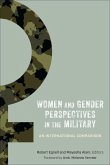"In February 1991, the leaders of Czechoslovakia, Hungary and Poland created the Visegrad Group as a political and cultural organization for the post-Cold War world. The goals for the group were to recast international perceptions of their region and secure membership in NATO and the European Community. Named after Hungary's Visegrâad Castle, the group overcame obstructions, swiftly crafting this unlikely international actor that transformed Western institutional mindsets about the former East Bloc, redefined central Europe, and contributed to reordering the Euro-Atlantic area. Visegrad achieved still more, forging security networks between the EU and NATO, shaping EU internal priorities, and leading the EU's flagship external relations towards post-Soviet states, including Ukraine. The group continues today, now numbering four after Czechia and Slovakia split, and continues to be a robust bloc on issues within the EU and NATO. This book is built on years of uniquely obtained oral and written sources and from the author's sustained engagement in this region. Rick Fawn shows how Visegrad has changed central Europe, largely for the better. This book also contributes to the wider study of regions and regionalism in international relations"--
Hinweis: Dieser Artikel kann nur an eine deutsche Lieferadresse ausgeliefert werden.
Hinweis: Dieser Artikel kann nur an eine deutsche Lieferadresse ausgeliefert werden.








